Ah, the dreaded employment background checks. Love ‘em or hate ‘em, depending on where you live and what kind of work you’re trying to do, you’re going to have to get those background checks completed one way or another.
Now, hopefully, you don’t have a seedy background that might keep you from landing your dream job. And to be clear, even if you do we’re not judging in any way. However, it’s not a good idea to lie on your employment applications if you do have some type of criminal history or poor past job performances that might preclude you from getting the job you want. In some instances, lying on your application might not just lose you the job — it could land you in legal trouble as well.
Regardless, employment background checks and employment pre-screening can easily be a privacy nightmare for job seekers. Employers may try to go to fairly extensive and sometimes invasive lengths to feel you out. To be frank, employers do have a duty to hire someone who won’t be a risk to their company, brand, or other coworkers. In some situations, they have a legal requirement to explore your background and could be fined or held legally responsible if they don’t do their due diligence in hiring. However, they cannot and should not attempt to gather more information about you than is necessary to make that determination.
That being the case, it’s important to know your privacy rights when applying for jobs. Employers can and will use a lot of personal information to make hiring decisions, but they can’t access or use all of it. You may not be able to avoid background checks, but you can at least resist invasive practices while you’re applying for jobs.
Below, you’ll find a consumer guide to employment background checks. Unsure of what the process might look like for a specific career you’re hoping to get into? Just shoot us a comment at the bottom, and we’ll be more than happy to do a little extra research on your behalf. Hopefully, our guide will help you understand what to expect and most importantly what information about you is both private and legally protected from potential employers.
Contents [hide]
Why are employers allowed to check my background?
There are a large number of reasons employers may identify for why they need to run a background check. Realistically, there is a much smaller number of legal reasons that they can check your background, with a very limited number of ways they can use that information to reject or accept your application.
In the UK, Canada, US, and EU, background checks will usually serve the following purposes:
- To determine if you’re legally eligible to work in the country (e.g., citizenship status or you have a legal work visa)
- To check criminal history for work with sensitive populations (healthcare and childcare)
- Financial history for some types of work
- To ensure you meet certain health requirements for the work in some scenarios
- To ensure you’re a right fit for the job, based on your skills, past work history, work habits, and personality
These five reasons are, for the most part, the only legal reasons you’ll find in most countries. While laws exist regarding immigration work status, for all countries, you must have a legal work permit of some sort to work in that country if you are not a citizen. Employers can discriminate based on legal work status without consequence if you do not have the proper work permits.
There is also some leeway for employers to search your background for other information. Additionally, not all employers will use official background check companies or services to search your background. Some may employ private investigators, perform online searches of your social media, or call listed references and former employers.
What information can employers legally use?
There is a lot of variation in every country regarding what information employers can use to deny or accept you for a job position. However, in almost every case, employers cannot use racial or ethnic background, political opinions or views, genetic history, age, gender, maternity status, sexual orientation, or closed or pardoned criminal convictions to deny you a job. In Canada and the US, in particular, human rights rules exist that significantly limit what personal information can be used to reject you for a job.
Should I care about my privacy if I have nothing to hide?
Simply put, yes you should! Although legal requirements are limit what information an employer can use to deny a job, it is incredibly difficult to prove an employer denied you a job because of private information that was illegal for the employer to use against you. Unless someone has a written, audio record or visual record of the employer finding and using private information against you, there is little you can do.
However, ensuring that your private information is highly secure online will help prevent this from occurring. This includes making sure your social media accounts have the highest possible privacy settings.
Consider the job’s background check requirements before applying
Before understanding what a background check entails for your country, it’s a good idea to explore the employment application and inquire with your potential employer about the depth and breadth of the background check process. As employers differ, here are some common questions you can ask:
- How far back does the background check extend?
- What kind of information do you look for in a background check?
- What kind of crimes might preclude me from this position?
- Does the background check also include financial history?
- If financial history matters in the background check, what do you look for? (e.g., credit score, liens, bankruptcies)
- How much weight do you place on expunged or sealed records?
- Will my social media or web presence be scrutinized in the process?
What to avoid:
- Avoid employers that ask for your social media passwords as a prerequisite for the job. While this is not specifically illegal, it is highly unethical and almost certainly an invasion of privacy.
- Avoid employers who play fast and loose with personal information. It’s not always easy to know which employers might be guilty of this, so you may want to check job search forums and business ratings on the company. (You may want to head to the website Glassdoor, where individuals who work for companies both rate and leave comments about what it’s like working for different businesses.)
- If the company has a known history of data breaches, you may want to be wary, especially if it means giving that company your private information even during the application process.
- Employers asking for private health records. This is illegal in most countries, and cannot be used to determine your job eligibility in most cases either.
US employment background checks

For US residents, the Equal Employment Opportunity Commission (EEOC) is the primary federal body protecting worker rights regarding background checks. Other organizations which play a role include Fair Employment Practice Agencies (FEPAs), the US Departments of Labor and Justice, the US National Labor Relations Board (NLRB), state employment agencies, and workers compensation state agencies. The EEOC only handles cases where discrimination has occurred due to race, gender, religion, ethnicity, national origin, pregnancy status, genetic history, and employer retaliations. According to the EEOC:
“Except for certain restrictions related to medical and genetic information…it’s not illegal for an employer to ask questions about an applicant’s or employee’s background, or to require a background check.”
What this means is that employers can consider almost anything about your personal, financial, and criminal history and may be able to make hiring decisions based on a multitude of different facts discovered in your background, with only a few exceptions. A history of certain medical conditions cannot be legally used to deny a job, nor can certain genetic traits. Furthermore, racial background cannot be used as a determining factor for denying a job.
US background check laws and privacy rights
Several US laws govern how employers can and cannot use background information when making hiring decisions.
Civil Rights Act of 1964
Perhaps the most important of these is Title VII of the Civil Rights Act of 1964. Title VII of this act established the creation of the EEOC. Key phrasing regarding employer hiring practices can be found in Section 2000-2 [Section 703]. Notable wording in this section includes:
“It shall be an unlawful employment practice for an employer –
(1) to fail or refuse to hire or to discharge any individual, or otherwise to discriminate against any individual with respect to his compensation, terms, conditions, or privileges of employment, because of such individual’s race, color, religion, sex, or national origin.”
From this section, job seekers have some protection against their personhood being used as a reason for a denied job application. The focus of the Civil Rights Act of 1964 is to prevent discrimination relating to permanent and unchangeable features that could be used to discriminate against someone in different areas of life, employment prospects included.
The EEOC also disallows employment discrimination on other factors, such as a woman’s pregnancy status or any applicant’s sexual orientation.
Fair Credit Reporting Act
While employers are allowed to use credit history when making employment decisions, they are not allowed to obtain or use that information without your consent. Additionally, they need to inform you how they intend to use that information. This is a result of the 1970 Fair Credit Reporting Act (FCRA). The Federal Trade Commission enforces the FCRA rules for employers.
More completely, the FCRA dictates that employers who plan to use credit reports must do the following:
- Explain in writing that the information may be used as part of the hiring decision
- Receive permission to obtain credit history
- Use this information appropriately, which includes not selling this information for personal gain
- Provide the application with a copy of the credit report if the company does not hire you
- Give you an opportunity to dispute the information located within the report (as a result of 2003 Fair and Accurate Credit Transaction Act (FACTA), an amendment to the original FCRA)
Privacy Laws
While the US does not have any one specific law dictating an individual’s absolute right to privacy, both the First Amendment (freedom of speech) and the Fourth Amendment (unlawful search and seizure) have been interpreted to grant implicit privacy rights in many cases.
It is reasonable to assume in the case of background checks that the Fourth Amendment will come into play should an employer attempt to push too far in accessing private information. While the right to free speech granted by the First Amendment more specifically is a check on government intrusion on speech, the Fourth Amendment has at times been used as a defense for private citizens against business intrusion into privacy.
The privacy rights assumed in the Fourth Amendment can be reasonably expected to apply to other private information, such as private social media posts made to friends and family.
However, at present, there are no laws regarding most privacy rights and how employers can or cannot use most private information about you, outside of what was mentioned regarding employment discrimination.
What can be reasonably assumed to be private is not always necessarily legally protected. In this case, it’s best to keep as much information private as possible before making a job application, and, where feasible, reject potential employers’ requests to access private accounts.
State laws
Many states have specific laws in place that create additional rules for employers who use background checks. These laws vary significantly by state. The website GoodHire provides a convenient database detailing every background check law currently on the books for each state.
Examples:
- In California, most criminal convictions older than seven years cannot be used. Employers also cannot force applicants to pay the cost for drug tests, while employers additionally are limited in reasons they might use a credit report for application purposes.
- In New York, employers cannot discriminate against those with criminal convictions unless those convictions relate specifically to the job to be performed, or present a danger to the public or potential coworkers. Those denied a job due to criminal convictions can request an explanation in writing.
- In Maryland, an employer may only use a credit report if the results of the report are “substantially job-related.”
Legal issues in US background checks
It’s not uncommon for employers to deny applicants jobs because of something discovered in a background check. However, many will provide an alternative, legal reason for denying the job instead of the real reason. To be clear, while employers can certainly dig up a significant amount of information about you, much of what they can use to deny you a position is not legal. Indeed, there may be a reason for you to be skeptical if your qualifications and background seem good, but something that you know should be private may have influenced a rejection.
Nevertheless, these hiring misdeeds do happen. They are also extremely difficult to prove, and most lawsuits of this nature simply do not succeed or even make it to court for that matter. The legal advice website NOLO points this out, stating:
“…there aren’t many hiring lawsuits filed – and even fewer are won. There are a few reasons for this, but it mostly boils down to proof. It’s hard to know – and harder to prove – why an employer turned down a particular applicant. Often, an applicant is left with strong suspicions but little hard evidence, particularly if the applicant doesn’t have any personal contacts within the company.”
What information is illegal for employers to check or use in the United States?
What information can your potential employer look at and use? What information is legally off-limits? Here’s a helpful chart for U.S. residents regarding a large number of factors.
What to do if you think you’ve been illegally rejected for a job
Most potential employers will be less-than-upfront with applicants about why they’re rejecting the application for open positions. “We’ve chosen to pursue other candidates,” is common, as is “We’re looking for someone with more experience”.
The harsh reality of this situation is that there’s little you can do to prove it, even if you do have a sinking suspicion that something else about your personal history has come into play. To be sure, employers may even violate your privacy in order to get the information that they want or need that led to that rejection, but without firm proof, you may be out of luck.
Whether it’s an unfortunate criminal conviction, poor credit score, racial background, age, or certain disability, there are some things we cannot change about ourselves — which, indeed, is the reason why the federal government has laws against using those things to reject applicants. After all, obtaining more experience, licenses or degrees is possible, but you cannot change a genetic trait or go back into the past and undo a mistake you made.
You can, however, lock down your online presence as much as possible to prevent that aspect of your life from being used and abused by employers.
You will find that several government organizations exist to provide some checks and balances on the system and give consumers a place to file grievances if they do believe they’ve been unfairly rejected for a position.
Option 1: Complete the EEOC Assessment System
This online survey will help you determine if you may have a legitimate EEOC claim on your hands. Please note that completing this survey online is not the same as filing a complaint. The EEOC does not take electronic complaints. This survey is only to help you determine the viability of your suspected complaint. Additionally, this only covers the types of complaints that fall under the EEOC’s purview:
If you select “None” here, the site will take you to a list of other organizations that handle various employment practice and discrimination claims. Unfortunately, if you do have a legitimate complaint, you may run into a problem with company size. If the business you believe discriminated against you has fewer than 20 employees, the EEOC will not investigate, giving the following message:
“The assessment has ended for the following reason:
Under the Age Discrimination Act, covered employers must employ at least 20 employees to fall within the Commission’s jurisdiction. However, it may be difficult to determine exactly how many employees the organization has. If you have any questions about your rights or how to count the number of employees, please contact the nearest EEOC office or call 1-800-669-4000…”
This size limitation changes depending on the type of discrimination. For example, in cases of racial discrimination, the minimum company size is 15. If that happens to you, the system will give you this message:
“Other than the Equal Pay Act, our laws do not cover organizations with fewer than 15 employees. It may be difficult to determine how many employees the organization has. If you have any questions about your rights or how to count the number of employees, please contact the nearest EEOC office or call 1-800-669-4000…”
The EEOC also has a statute of limitations in place for filing claims, which can change based on the location of the incident. For example, when making claims in Virginia related to rejections due to genetic information (e.g., family history of mental illness), you have 180 days to file a report. For claims related to all other areas covered by the EEOC, you have 300 days. You’ll receive a message similar to this one in that case:
“The assessment has ended for the following reasons:
For allegations of genetic information discrimination, an individual has a maximum of 180 days from the date the incident occurred to file a charge with the EEOC.
For other allegations (not related to sex-based pay discrimination), an individual has a maximum of 300 days from the date the incident occurred to file a charge with the EEOC.
It appears from the information that you provided, that your claim may be untimely. If you have any questions about your rights, please contact the nearest EEOC office or call 1-800-669-4000…”
Meanwhile, racial discrimination claims in Alabama must be filed within 180 days of the incident.
Even in situations where you do have a legitimate claim, the EEOC notes that there could be some complications due to where the incident occurred. This means you may or may not be too late. You may receive a message such as this one:
“The anti-discrimination laws give you a limited amount of time to file a charge of discrimination. Figuring out how much time you have to file a charge is complicated. Depending on where the incident occurred, you typically have 180 or 300 days to file a charge. From the information you gave us, it looks like your time has run out or may be about to run out.
Please contact your nearest EEOC office as soon as possible so we can figure out whether you still have time to file a charge.”
Additionally, certain other restrictions apply for different types of discrimination. For example, Age Discrimination only applies to anyone over the age of 40. That means anyone who feels they were rejected for a job because they were too young, or not quite old enough, has no legal representation by the EEOC.
If the incident was more than 300 days ago, you have run out of time for all types of discrimination that the EEOC covers, except for sex-based pay discrimination. Those claims can be filed within three years (1,095 days) of the event.
Option 2: If you have a claim that the EEOC will accept, file it directly
If you believe your claim to be legitimate (and the EEOC assessment confirms that it might be), be ready to file your claim as soon as possible. You will want to file your claim directly at your local EEOC field office for best results. Barring accessibility, you can also call. Avoid emailing, as this is likely not to get much of a response, or just result in the EEOC telling you to visit in person.
As stated earlier, most EEOC claims fail, so if you believe your claim is legitimate, you are going to need significant documentation. For this, you’ll need one or all of three things:
- Testimony. Yours won’t do. You’ll need the testimony of someone who has first-hand knowledge of why you did not receive the position. Provide the EEOC with that person’s contact information and position as soon as possible.
- Documents. If you have documented evidence, provide it immediately and as much of it as possible. That could be anything from emails, phone recordings (make sure these were legally obtained), text messages, written notes or letters, social media posts, etc. If you are aware of any documentation that may exist that you do not have, let the EEOC know about it and where they may obtain it.
- Statistical. The EEOC may at times try to see if individuals similar to you (age, race, gender, etc.) have been statistically disadvantaged by a certain company policy. This is not something the EEOC will commonly check, and the data may be hard to obtain as well as difficult to use as evidence.
Option 3: Contact other agencies that cover different types of discrimination
Although the EEOC covers most discrimination claims, it does not handle all of them. The EEOC will refer your claim to other organizations in the case that your claim is outside of the areas that it does cover. Contact the following agencies if your claim falls outside of the EEOC’s coverage:
- Fair Employment Practice Agency
- Department of Labor Civil Rights Center
- National Labor Relations Board (E-Filing allowed)
- State Employment Agencies
- Workers Compensation Divisions
Option 4: Hire a discrimination lawyer
If your complaint fails, or you feel that the company may be difficult to work with when filing the claim, it’s a good idea to hire a lawyer to help you navigate the legal process. Many lawyers specialize in discrimination cases, and your chances of success are generally higher when you utilize professional legal counsel instead of going it alone.
We recommend using FindLaw to locate a good discrimination lawyer near you.
Canada employment background checks

In Canada, background check rules are mostly focused on privacy rights. There are also specific laws in place designed to protect certain classes of people against employment discrimination. Furthermore, what information employers can or cannot collect can sometimes differ between different provinces. However, there are some relevant laws in place that cover every province, and some things Canadians will want to consider before filling out a job application that requires a background check.
When thinking about your own background and what employers might find, consider all of the following:
- Your financial history. Potential employers may seek to better understand your finances, as this could be important in deciding whether or not you are a good candidate.
- Your criminal history. Whether you have a history at all and what may be located in that criminal history can be important to employers.
- Your educational history. Most employers will check your educational background as a standard practice, and will seek to confirm the educational history you put on the employment application. This can include whether you have certain licenses to perform required job duties.
- You driving record. Depending on the type of job you’re applying for, your driving record may be fundamental to the hiring decision.
- Your online and social media presence. Some companies may seek to understand your character based on your social media presence. While there are limits to how much information they can obtain through this method, publicly available information is and can be commonly used to make determinations.
In Canada, there are several governmental bodies overseeing fair employment practices, including how background information is collected and used. Those organizations are:
- Canada (all): Canadian Human Rights Commission and Labour Canada
- Alberta: Alberta Ministry of Labour
- British Columbia: British Columbia Employment Standards Branch
- Québec: Commission des normes du travail
- Saskatchewan: Advanced Education, Employment and Labour
- Manitoba: Manitoba Labour and Immigration
- Ontario: Ministry of Labour Employment Standards Branch
- New Brunswick: Department of Post-Secondary Education, Training and Labour
- Nova Scotia: Labour and Workforce Development Labour Standards Division
- Prince Edward Island: Communities, Cultural Affairs and Labour Employment Standards Branch
- Newfoundland and Labrador: Human Resources, Labour and Employment Labour Relations Agency
- Northwest Territories: Education, Culture and Employment Employment Standards
- Yukon: Department of Community Services
- Nunavut: Department of Justice Labour Standards Office
The Alberta Ministry of Labour notes that only 10 percent of its labor requirements are federal law. This statement can equally be applied to all other provinces in a similar way. While federal standards exist that cover all provinces, most employment practices are dictated at the provincial level, although they must still align to federally mandated laws related to anti-discrimination and privacy rights.
Additionally, many Canadian companies are now performing mid-employment background checks. These are background checks instituted after you are already working for the company. A 2009 Ontario court ruling challenging the practice found them illegal, but other sources reveal that the practice is still occurring and may actually be legal in some parts of Canada. Still, even mid-employment checks must maintain proper rules against discriminatory and privacy restrictions.
We will discuss in detail the federal laws that cover all of Canada first, then provide more regionally specific details afterward.
Federal laws on Canadian employment background checks
As stated, the laws related to employment screenings in Canada are limited. However, the primary pieces of legislation in place that govern what information employers can and cannot obtain or use during employment background checks include:
Canadian Human Rights Act
The Canadian Human Rights Commission provides a detailed document overviewing how human rights and employment practices connect, and how the act oversees this issue.
According to the act, individuals cannot be discriminated against in the following areas:
- Race
- National or ethnic origin
- Color
- Religion
- Age
- Sex
- Sexual orientation
- Marital status
- Family status
- Disability
- Pardoned criminal offenses
- Suspended criminal records
In the case of disabilities, in particular, employers are strongly encouraged to make provisions to hire such individuals.
Section 7, “Employment” and Section 8, “Employment applications, advertisements” are the most relevant parts of the Act for job seekers. These two sections state the following:
| Section 7 | Section 8 |
| It is a discriminatory practice, directly or indirectly, | It is a discriminatory practice |
| (a) to refuse to employ or continue to employ any individual, or | (a) to use or circulate any form of application for employment, or |
| (b) in the course of employment, to differentiate adversely in relation to an employee, on a prohibited ground of discrimination. | (b) in connection with employment or prospective employment, to publish any advertisement or to make any written or oral inquiry that expresses or implies any limitation, specification or preference based on a prohibited ground of discrimination. |
In this manner, employers cannot discriminate against job seekers during pre-employment screenings or even in the wording for posted available jobs. Doing so is a violation of the law anywhere in Canada, and those who are discriminated against during this process can file for legal recourse.
Personal Information Protection and Electronic Documents Act (PIPEDA)
Given PIPEDA mostly applies to private businesses and how they collect and use private information for commercial purposes, PIPEDA is not primarily designed to be of interest to job seekers. However, job seekers should have an understanding of what limitations exist on employers, especially the kind of information they collect and how they collect it. They could be in violation of information privacy rules under PIPEDA.
Legal expert Malcolm MacKillop of Shields O’Donnell MacKillop LLP, writes:
“The law prohibits a federally regulated employer from using or collecting an employee or potential employee’s personal information without their knowledge and consent, subject to a number of exceptions.”
However, PIPEDA does not prevent employers from using information that is publicly available, such as an open blog or freely available information posted on social media. This information cannot be used to make discriminatory judgments, but it can be used to make character judgments that might lead an employer to pass over a job applicant.
Alberta Employment Checks
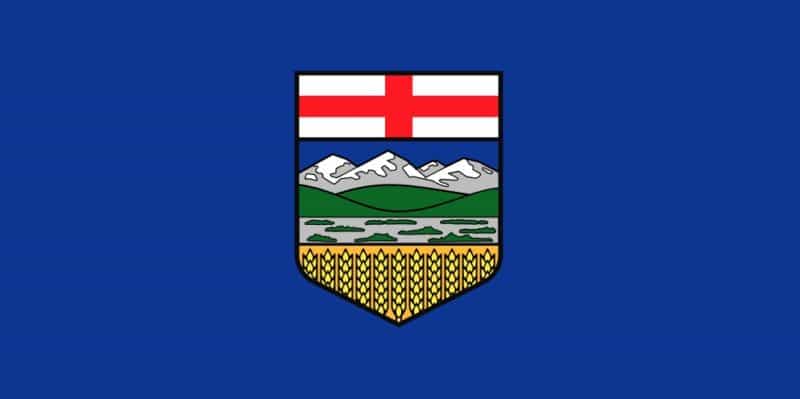
Alberta has a Human Rights Act separate from, but similar to, the Canadian Human Rights Act. The Alberta Human Rights Act is nearly identical to the federal law but expands on it to add one extra protected class that cannot be discriminated against during the employment process. The full list of protected classes includes the following (with items that are not found in the federal Human Rights Act highlighted):
|
|
Note that by law, potential employers may not even ask about these protected areas. This means that these aspects of your personhood are wholly and completely private, and potential employers are prohibited from seeking that information if it’s unknown or using it if it is known.
Link: What can employers ask you
Additionally, employers in Alberta may not do the following during the pre-screening process:
- Demand certain discriminatory characteristics as requirements the job
- Use biased words
- Request pre-employment tests unrelated to the job to be performed
- Ask questions that may reveal private information protected by privacy acts
Alberta also maintains the Personal Information Protection Act (PIPA), a privacy-centered law that guarantees, among many other things, certain protections for employees and applicants regarding their private information. According to the Act, personal information may be used without consent if it is used for “establishing, managing or terminating an employment or volunteer-work relationship.” This means job applicants in Alberta can expect some of their personal information to be used during the pre-employment screening process, although the limitations of this law still exist regarding prohibited information outlined in both the federal and provincial Human Rights Acts.
However, PIPA also gives employers the right to disclose that information as long as it fits the above definition of use as well. Nevertheless, the law defines such collected information as that which is “reasonably required.” This information is typically understood to be the kind you willingly supply to the employer, information that is publicly available, or some information that may be obtained through contacting your listed references.
British Columbia Employment Checks
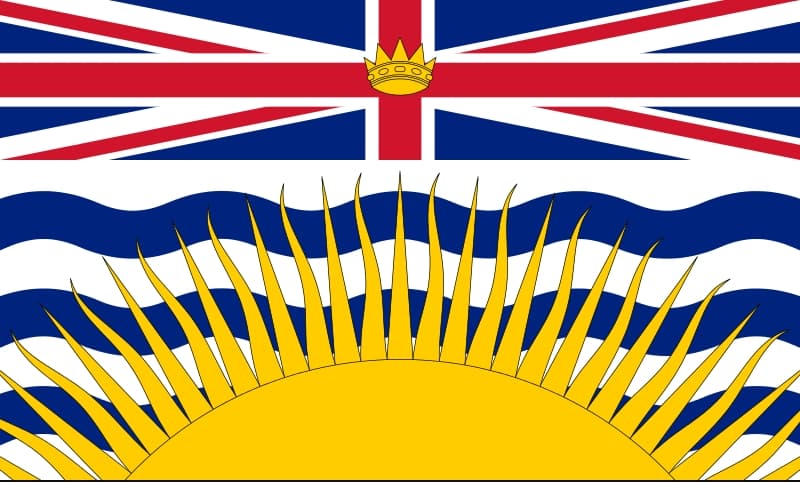
The Continuing Legal Education Society of British Columbia provides a very detailed write-up related to employment background checks and laws that govern them. To summarize their document, there are three laws (not counting the federal Human Rights Act) that employers in BC must follow when conducting employment pre-screening:
- Freedom of Information and Protection of Privacy Act (FOIPPA)
- Personal Information Protection and Electronic Documents Act (PIPEDA)
- Personal Information Protection Act (PIPA)
FOIPPA primarily focuses on government entities, while PIPEDA’s focus is on commercial industries. PIPA affects both government and private employers.
For British Columbia, the primary areas under scrutiny within these laws are:
- Reference checks
- Credit checks
- Criminal record checks
- Security checks involving collection of spousal information
- Collection of health information
Regarding reference checks
Employers must obtain consent when collecting references and must explain that they will conduct a reference check. Any references you list on an application, be it with contact information or not, are assumed to come with implied consent for contact. As an applicant, you also have the right to access personal information obtained in the reference check, as long as the information is personal to you. You do not have the right to obtain what references said about you as part of the reference check.
Regarding credit checks
This complicated issue is highlighted by a lawsuit that emerged in Alberta involving that province’s version of PIPA. In that lawsuit, a woman was denied a request from a potential employer on how it uses credit checks during the hiring process. She discovered that the company denied her a job based on her credit history, in that it did not trust her to use petty cash and a company credit card properly.
The company was found to be in error according to PIPA, however, as it was determined that the job the woman was applying for would not have needed a company credit card. Furthermore, a judge determined that someone’s personal credit history cannot be reasonably used to determine how that person will handle the company’s money.
Additionally, the company used the credit score to find out work history that the woman had not indicated on the job application, something the judge determined was not appropriate.
British Columbia follows Alberta’s example with its own PIPA law. As such, companies that want to use your credit report must have a compelling reason to do so, and they cannot use it to discover work history that you choose not to list. They also cannot deny you a position based on a bad credit report without a very compelling reason.
Regarding criminal record checks
British Columbia’s FOIPPA and PIPA laws consider a criminal record “personal” and “private” information. The use of this information is regulated and can only be collected and used where it is reasonable.
For employers governed by PIPA (private), certain criteria must be met for an employer to use that information. This includes the following:
- Collection must be “for purposes that a reasonable person would consider appropriate for the circumstances”, including when establishing an employment relationship (ss. 11(2)(b), 14, 16(2)(b), and 19(2)(b))
- Employers must disclose, either orally or in writing, why the information is being collected, and who the potential employee can contact should he/she have questions about that collection (ss. 10(1), 13(3), and 16(3)
To clarify, your criminal background is not off limits, and there are no limitations to how far back into your criminal history an employer can go. Additionally, you can be precluded from the position as long as the employer believes the criminal background requirement is reasonable for the position. However, that employer must be able to prove that the denial is reasonable, and must be upfront about what type of information they’re looking for and will use for such a denial.
As FOIPPA only governs public organizations, how those organizations use private information is slightly different than for private employers. Under FOIPPA, government agencies must meet one or more of the following criteria for criminal background checks when making hiring decisions:
- Use of the information must meet the Criminal Records Review Act, where applicable
- The information is used for law enforcement
- The information is necessary for a public program or activity
Additionally, a BC arbitrator overseeing issues related to criminal background checks used by public organizations helped define when such background checks are appropriate for different types of positions. The arbitrator determined that such checks are appropriate for the following:
- Positions with an ongoing relationship with vulnerable people
- Positions of trust and care
Regarding collection of spousal information
Under PIPEDA, the collection of private information about spouses is deemed legitimate, particularly in situations where someone is applying for a sensitive security position. Although not desirable for the potential employee, employers may consider it necessary for some secure positions due to the intimate knowledge spouses will have regarding their partner’s beliefs and actions.
Québec

In Québec, the Human Rights law applies, while other privacy laws on the provincial level also play a part. Unique to Québec is the Protection of Personal Information in the Private Sector Act. Ostensibly similar to the federal PIPEDA law, Ontario’s law and PIPEDA conceivably interact.
In Québec, personal information can only be collected in a limited number of situations and needs the consent of the applicant. However, the law also states that private information can be collected without consent if it’s:
- In the interest of the applicant and the applicant is unable to provide that information in due time
- To verify the accuracy of information already provided
Furthermore, during employment background checks, employers must follow all of the following rules:
- Inform applicant of the information to be collected
- Who will have access to that information
- Where that information will be stored
- Obtain consent to have that information sent to a third party
- Only obtain personal information from the applicant, unless the applicant agrees to have information collected from a third party
- Only collect information necessary for the job
Under the law, if an applicant refuses to disclose certain personal information, potential employers can still seek access to that information in the following situations:
- Collection of that information is necessary for the conclusion or performance of a contract;
- Collection of that information is authorized by law; or
- There are reasonable grounds to believe that the request is not lawful
If that criteria is not met, the information is to be considered “non-necessary” and not lawful to collect.
Saskatchewan

The Saskatchewan Human Rights Commission and the Saskatchewan Public Service Commission are the primary bodies which oversee employment protections, including applicant background checks. The Human Rights Commission covers employment issues related to personhood, while the Public Service Commission oversees employment background checks for government agencies.
The Saskatchewan Human Rights Commission expands on the Canada Human Rights Commission’s list of protected groups by including receipt of public assistance, as well as expanding on other areas that already exist. In particular, the Saskatchewan version changes race to “ancestry, color, race or perceived race,” adds “18 and up” to the age protections, changes ethnic origin to “place of origin,”, and adds “religious creed” to the religion protections.
These, and the other protected areas cannot be used when making hiring decisions, and cannot be sought when companies conduct background checks. Potential employees may choose to submit that information voluntarily, but even then it cannot be used as a hiring factor.
For government positions, the Public Service Commission focuses on criminal record checks or CRCs. Some positions also include a vulnerable sector check, which involves a more extensive background check.
Individuals applying for government jobs, or jobs that involve vulnerable sectors, should expect some privacy intrusions. Depending on the type of job, Saskatchewan employers, including the government, withhold the right to ensure that they do not hire individuals who may be a threat to vulnerable sectors. Beyond that, however, individuals can expect a significant amount of privacy regarding the type of information that governments and businesses can obtain during the background check process.
Manitoba

Individuals will find a range of privacy protections when applying for jobs in Manitoba that include the application process for private companies and government agencies.
The Manitoba government upholds the Canada Human Rights Code rules on employment discrimination by maintaining their own version with only slightly altered language. Alongside the other areas identified by the Canada Human Rights Commission, Manitoba employers cannot pry into your political beliefs during or after the pre-employment screening and cannot use any social disadvantages as a reason to discriminate against you when applying for employment.
Manitoba also spells out that drug and alcohol dependency are considered a disability within the language of the Code. As such, employers in Manitoba are mostly barred from using these as a means to deny an application or during a background check, although in very specific cases they may be allowed to use the information to deny an application, particularly if the alcohol or drug dependency may interfere with your ability to perform the job. Nevertheless, businesses in Manitoba are required to make accommodations for those suffering from such disabilities.
Overall, Manitoba gives employers some leeway to find the right person for the job, but strongly dictates how employers must respect human rights during the pre-employment process.
Ontario

The Ontario Human Rights Commission makes an interesting stipulation that many of the common documents used during employment background checks “should only be requested if they are bona fide requirements because of the nature of the job.” The OHRC’s list of documents includes:
- Driver’s license (may reveal disability, age, sex and gender identity)
- Birth certificate (may reveal age, sex and gender identity)
- Work authorization issued by Immigration Canada (contains information on date of arrival in Canada)
- Educational or professional credentials (may reveal information on place of origin)
- Social Insurance Number (may contain information on date of arrival in Canada and residency status)
- Information about health or age necessary for pension, disability, superannuation, life insurance and benefit plans [may reveal disability, age, sex (pregnancy) or gender identity]
- Police record checks (may reveal information about a person’s mental health)
- Psychological testing, if legitimately required for assessing ability to do the job
- Next-of-kin or person to be notified in case of emergency (may reveal family status, marital status, sexual orientation)
- Insurance beneficiary (may reveal family status, marital status, sexual orientation)
- Accommodation needs.
According to the OHRC, these documents must also be kept confidential. In this manner, Ontario’s government places limitations on which types of documents companies can request from job seekers, aiding in the effort to secure privacy and limit discrimination during pre-employment screening.
Additionally, the OHRC dictates that asking for medical tests is a violation of the Code, while the use of psychological testing should be approached with extreme caution. The OHRC primarily disagrees with the use of psychological testing as a part of the pre-employment process, with most considered to be a human rights violation and completely against the Code.
The OHRC also defines drug and alcohol dependency as a disability, such that it cannot be used to deny someone a job in most circumstances. Police records or criminal records can also be used only in very limited cases, most commonly if and when such information is essential for the protection of vulnerable persons.
New Brunswick

Unfortunately for job seekers, New Brunswick is one of six Canadian jurisdictions where criminal background checks can be used as a source of information during the employment pre-screening process. Additionally, companies can make hiring decisions based on what they find, and that can extend beyond just whether or not the job affects vulnerable populations.
This is not to say that New Brunswick does not also have its own rights protections. Much like other Canadian jurisdictions, New Brunswick has a Human Rights Act that closely mimics the wider law passed by the federal government. According to the New Brunswick Human Rights Commission, the following 15 areas are protected against discrimination:
- Age
- Marital status
- Religion
- Physical disability
- Mental disability
- Race
- Color
- Ancestry
- Place of origin
- National origin
- Social condition
- Political belief or activity
- Sexual orientation and sex, including pregnancy (and gender identity)
As noted earlier, and as is highlighted in this article, possessing a criminal background is not an area of discriminatory exclusion in New Brunswick, unlike in other Canadian jurisdictions. Your private criminal records may be exposed when you go through the pre-screening process, and can include a background check and fingerprinting just to complete a job application. Individual job seekers should be conscious of this when applying for jobs in New Brunswick.
Nova Scotia

Nova Scotia has a fairly extensive set of protected areas within its Human Rights Act. There are 20 aspects of an individual that employers cannot use to discriminate against job applicants. These include:
- Age
- Race
- Colour
- Religion
- Creed
- Ethnic, national or aboriginal origin
- Sex (including pregnancy and pay equity)
- Sexual orientation
- Physical disability
- Mental disability
- Family status
- Marital status
- Source of income
- Harassment (and sexual harassment)
- Irrational fear of contracting an illness or disease
- Association with protected groups or individuals
- Political belief, affiliation or activity
- Gender identity
- Gender expression
- Retaliation
For employers, this can be a potential minefield. For applicants, however, this means that the employment background checks must be very particular in the information sought, and employers must be very clear about avoiding the acquisition and use of any private information that might lead them to implicit or explicit discrimination during the pre-screening process.
However, Nova Scotia is among the jurisdictions that do not protect job seekers from criminal background discrimination. Employers in Nova Scotia may seek to dig into your private criminal background, and may choose to use that information or information they can easily find online through social media accounts related to potential criminal activity, as a reason to deny a job.
Prince Edward Island

Prince Edward Island may be one of the smallest Canadian legislative districts, but it does have some protections for potential job seekers. In its Human Rights Act, the Prince Edward Island Human Rights Commission expands upon the federal Canada Human Rights Code, expanding on only a few areas. In all, employers cannot consider, or may only use in a very limited manner, the following personal information:
- Age
- Color, race, ethnic, or national origin
- Criminal conviction
- Family or marital status
- Gender identity
- Political belief
- Sexual orientation
- Association (with an individual or group of individuals who are protected under the Act)
- Creed or religion
- Disability (including addiction and alcohol/drug testing)
- Gender expression
- Having filed a complaint or given evidence/assistance under the Human Rights Act
- Sex or gender (including sexual harassment and pregnancy)
- Source of income
Prince Edward Island residents do enjoy some of the most extensive pre-employment background check privacy protections. Employers must be very careful with the information that they use, as the Prince Edward Island Human Rights Act is far more detailed than what is found in most other parts of Canada.
Some of these legal protections may actually come across as rather extreme in some cases. For example, in Prince Edward Island, employers may not ask about the applicant’s age unless it’s specifically required for the job. Employers must instead ask, in general, whether the applicant is of legal working age.
Perhaps the only true privacy exception relates to criminal convictions. In most cases, an employer cannot inquire about or use this information, unless it is necessary for the specific position, and primarily to help protect vulnerable populations. In cases where the criminal convictions have no direct relation to that type of protection, the information cannot be used to deny a job.
Newfoundland and Labrador

Newfoundland and Labrador has a very standard set of discrimination protections in its Human Rights Act:
- Race
- colour
- nationality
- ethnic origin
- social origin
- religious creed
- religion
- age
- disability
- disfigurement
- sex
- sexual orientation
- marital status
- family status
- source of income
- political opinion
Unique to Newfoundland and Labrador is the inclusion of “disfigurement” as an excluded area. Beyond this, Newfoundland is similar to most other jurisdictions, although it is one of the 6 Canadian jurisdictions where criminal backgrounds are not protected. As such, applicants should be wary about the information they have present online that may reveal information that could exclude them from potential employment.
Northwest Territories, Yukon, and Nunavut

The Northwest Territories, Yukon, and Nunavut are unique among other Canadian jurisdictions in that they are federally regulated. The federal Personal Information Protection and Electronic Documents Act (PIPEDA) Act applies to public sector employers in this case. For information on how PIPEDA affects employers and job applicants, click here to return to the earlier section covering federal privacy laws.
Outside of PIPEDA, the Northwest Territories, Yukon, and Nunavut each have a Human Rights Act that specifies different areas that limit discriminatory practices during the application and hiring process. Each jurisdiction has slightly different wording in its Human Rights Legislation:
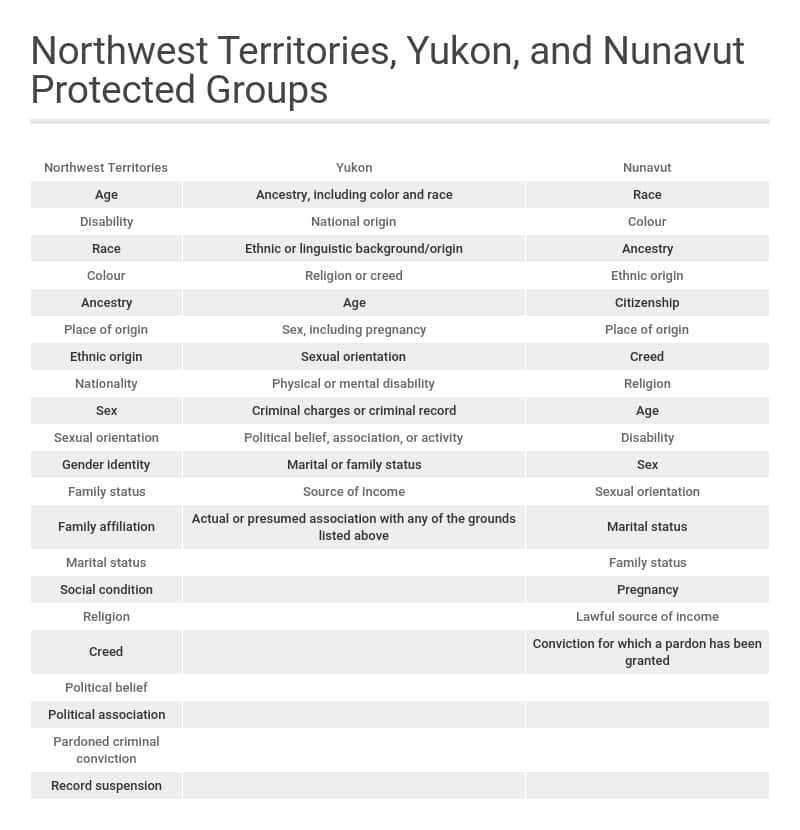
Interestingly, the Northwest Territories have the more extensive set of protected areas than the other two, while the Yukon lacks the specification for pardoned criminal offenses, although it does include a protection for criminal records in general. Additionally, Nunavut is the only Canadian jurisdiction that specifies that an income source must be “lawful”, in order to be protected. This means that individuals will need to be particularly conscious about what financial information they provide to potential employers, as an employer may consider a certain income source “unlawful.”
UK Employment Background Checks

In the UK, what information businesses can and cannot use in background checks is readily defined by the government. On the official government website.Gov.uk, the following noteworthy information is provided:
- UK employers must perform background checks to determine an employee’s eligibility to work in the UK or be fined up fined up to £20,000
- Jobs that involve healthcare and childcare are allowed to require criminal background checks
- It is illegal to refuse to hire someone due to “spent convictions” on their criminal record
- Personal health information is only allowed in two cases: it’s a legal requirement, such as eye checks for truck drivers, or if the job requires it (for example, the company insurers require health checks on cycle couriers)
- Health checks that are performed must meet legal requirements and not discriminate based on certain criteria (more details below)
- Employers must follow data protection laws when conducting background checks.
Let’s explore each of these major points in more detail.
Work Eligibility
Work eligibility is a common requirement in most countries, and in the UK, a requirement that carries a fine if the employer does not properly check this. At a bare minimum, expect that the employer will check either citizenship or legal work status. This is a fairly non-invasive background check.
Sensitive Populations, Criminal Background Checks, and Spent Convictions
As with work eligibility, your potential employer may be required to check private background information to ensure you are eligible to work with sensitive populations. This usually involves healthcare and childcare work, while the type of information usually involves criminal background checks.
In the UK, employers who want to use criminal background checks must use the official Disclosure and Barring Service (DBS) provided by the government. For Northern Ireland, the service is AccessNI. For Scotland, the service is Disclosure Scotland.
Unfortunately, you cannot use this service to do a criminal background check on yourself, so you will want to be sure you are confident about what’s in your criminal background before employers run this check.
There are some limitations to what information can be obtained through the criminal background check. According to the Rehabilitation of Offenders Act 1974, after a certain amount of time some criminal convictions are considered “spent,” or irrelevant to basic disclosure rules.
For job applicants, what this means is that any conviction that is spent may or may not still show up on criminal background checks, but in most cases cannot be used to prevent employment. The law is fairly particular regarding how this works, so we encourage you to read up on this here.
Both Northern Ireland and Scotland have slightly different rules related to criminal background checks and spent convictions. The rules above apply for the most part, with some small caveats.
Northern Ireland
- Basic disclosures: Includes spent convictions
- Standard disclosures: Includes spent and unspent convictions, cautions and informed warnings
- Enhanced disclosures: Same as Standard, adding in “relevant police information and where appropriate a “barred list” check.”
Scotland
- Basic disclosures: Does not include spent convictions or spent cautions
- Standard disclosure: May include relevant spent convictions
- Enhanced disclosure: May include relevant spent convictions, inclusion on children’s or adult’s lists, and other information police may have
- Protected Vulnerable Groups (PVG) scheme: All information is available, as the PVG is designed to prevent those with certain criminal histories from working with vulnerable adult and child population
Personal Health Information
Health checks can only occur in two situations:
- Legal requirement for the job to be performed, where certain health conditions are necessary for safe performance
- The job requires health checks
The second point, where the job requires it, can be a point of contention. Employers may decide that a specific level of healthiness is necessary for the job, even if you feel certain health conditions you have would not prevent you from completing the work. If that is the case, you can file a complaint related to the requirement, especially if you feel the health requirement is discriminatory and not necessary for the job.
Data Protections for UK Job Applicants
The government requires that all employers follow strict data protection rules when handling applicant information.
Employers must:
- Limit who has access to private information
- Appropriate staff has proper training to handle private information
- Store sensitive information separately from non-sensitive information
You also have a right to see what information an employer has on file, which must be provided to you within 40 days after your request.
Equality Act of 2010
In the UK, the Equality Act of 2010 puts in place protections against workplace discrimination for several different classes of individuals. The Act prevents employers from discriminating against individuals based on all of the following factors:
- age
- being or becoming a transsexual person
- being married or in a civil partnership
- being pregnant or on maternity leave
- disability
- race including color, nationality, ethnic or national origin
- religion, belief or lack of religion/belief
- sex
- sexual orientation
EU Employment Background Checks
The EU has made gains in unifying employment standards, but varying rules and laws exist across every EU member nation regarding employment background checks. As this particular area is overwhelmingly complicated, please refer to the following services to learn more about a specific EU member nation’s background check laws:
You may also want to check with your local government or a local legal authority in the EU to determine what kind of information is allowed. However, the EU Privacy Directive does maintain some level of control over how employers must handle your personal and private information.



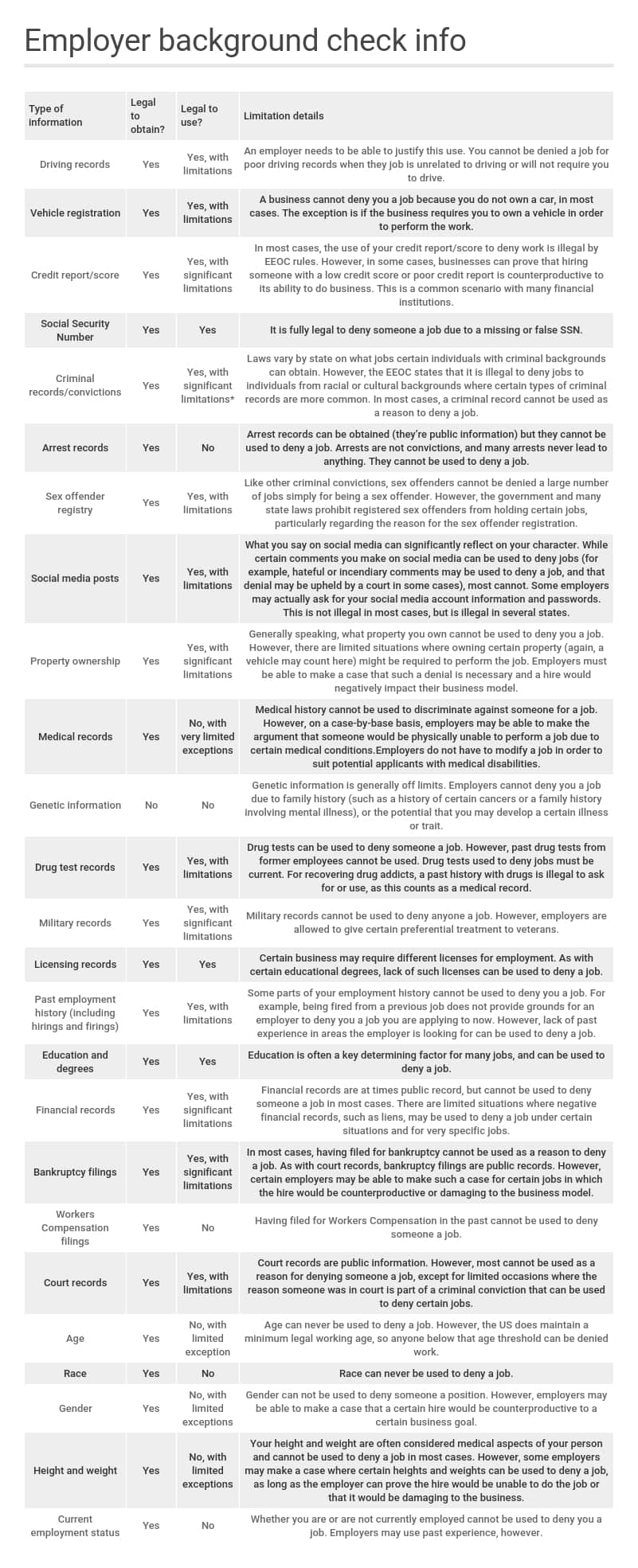
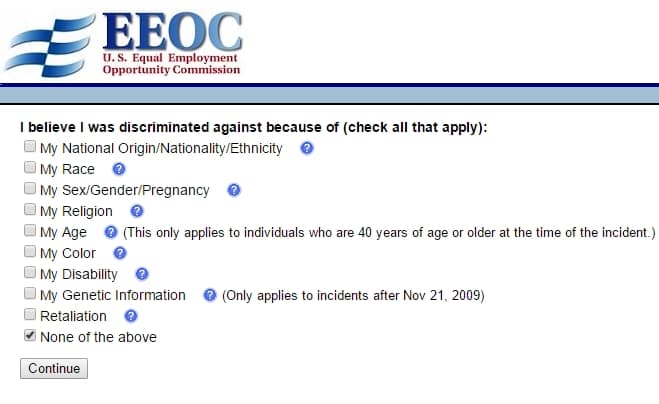






Nice Article! Admin
Thanks for Sharing.
Both employer and the candidate need to be aware of the privacy policies of a background screening process. The privacy policy basically outlines how personally identifiable enlightenment and other personal details will be collected. Title, name, mother’s maiden name, email address, date of birth, marital status, employment history, education, employment reference- are the personal pieces of information that an employer can collect by performing a background check. Certain limitations are there. In my opinion, everyone should keep themselves within the boundary when performing a background check.
When a new employer requests a background check to be done, how far back can they go? I’m in Ontario Canada.
I live in UK for past 5 years; have dual citizenship. I have secured a new job and they advised they use a 3rd party for background checks for the past 5 years. Now the 3rd party is asking for my Canadian ID number for them to check. I do not agree with this as it has no barring on my role in UK. Can they do this? or are they going too far?
Hi Shelly!
They can look as far back into your history as they feel necessary. The key issue is what information they’re allowed to use, but there is no limitation on time. In the UK, criminal convictions that are past a certain date would be considered “spent” and could not be used, for example, depending on the type of conviction. However, UK businesses can be fined if they don’t do a full background check to determine your eligibility to work in the country, so they’ll dig as far back as necessary to make sure you allowed to work there.
For the most part, as far as necessary when it comes to criminal history. Medical history, in most cases, is not something they can use, or ask for unless it’s *very* job dependent. They also can’t ask for information on sexual orientation or religion, although I would recommend you make sure your social media is clear. Even though much of that is off limits, employers can easily check social media, find something they don’t like and then reject a potential employee for some other reason.
Thank you
I like how you talked about why employers are allowed to check someone’s background. I think it would be very important to see if someone is legally able to work in the country or check for criminal history. If I were an employer, I would do background checks to keep my company I work for safe.
If I have an unpaid drinking in public ticket from 7 years that was issued in Alberta that I did not pay and found out there was a warrant out for my arrest, but still did not pay (ski bum season). Would it show up on a background check requested by a company in BC?
Cheers
Is this a trick question?
I know of an employee with a company here in Florida who had a background check performed prior to accepting the offer.
Several years later the company acquired a client in another state who is requesting a fingerprint and full background check on AMM EMPLOYEES working on their project.
What are the legalities for this and can they do that?
Hi Richard,
That’s not one issue I think I can answer. You might want to contact an employment attorney since we’re not certified to answer legal questions on specific incidents.